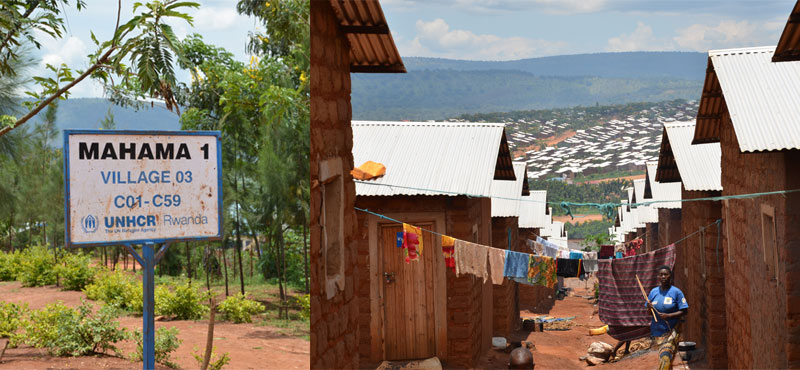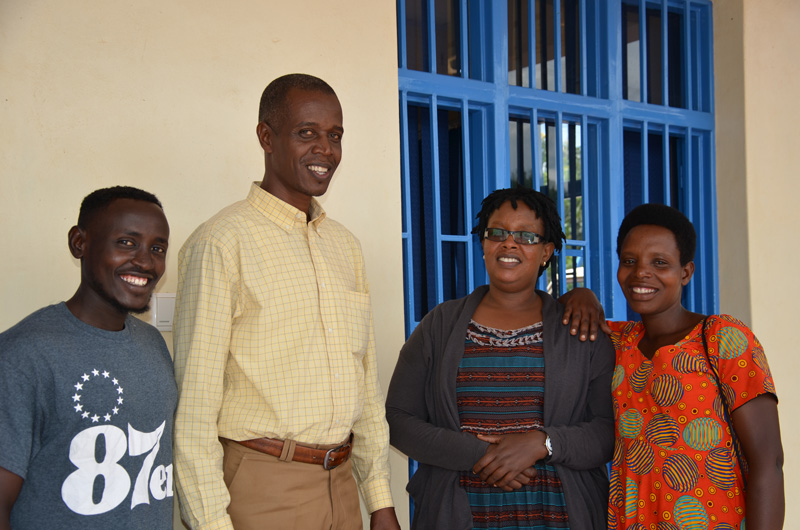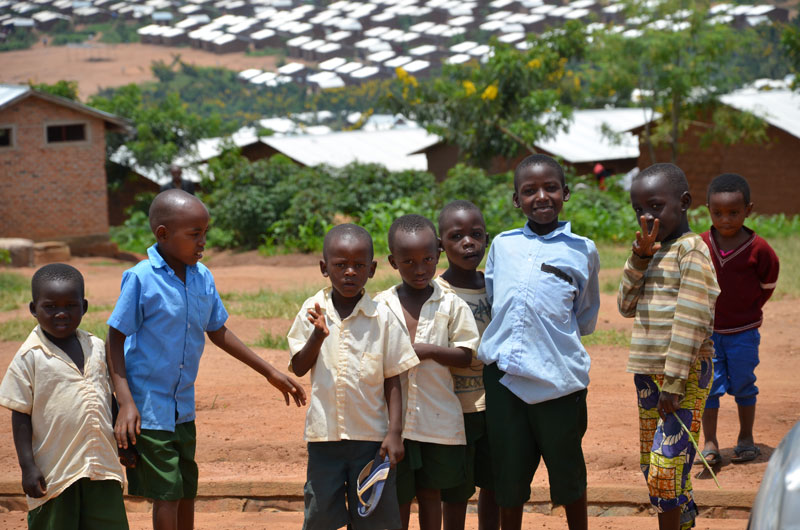
Mahama Refugee Camp was established in 2015 by the Government of Rwanda and the United Nations High Commissioner for Refugees (UNHCR). It is home to over 54,000 refugees. Photos by Cheyenne Cook/PMI VectorLink.
When Cedric Niyonkuru was in his second year of university, he was forced to flee his homeland of Burundi. Now, at age 25, Niyonkuru lives at the Mahama Refugee Camp in Kirehe District in Eastern Province, Rwanda. Established in April 2015, the camp is home to more than 54,000 Burundian refugees—earning it the nickname of Kirehe’s ’13th Sector’.
Living at Mahama Camp, Niyuonkuru has seen firsthand how destructive malaria can be to a community.
“It was rare to pass five houses without coming across someone who was suffering from malaria. Everyone in the family would get sick – so much so, that no one would be able to care for one another,” he said. “It was terrible. Because of this, other health complications came up. Everyday people were dying.”
At one time, the camp was responsible for more than 50% of the malaria cases reported in the district. In addition, almost half of the camp’s residents are children, who are particularly vulnerable to the disease.
In 2017, the U.S. President’s Malaria Initiative’s (PMI) VectorLink Project started conducting annual indoor residual spray (IRS) campaigns in Mahama Refugee Camp. This has reduced the prevalence of malaria in the camp by nearly 90%.
“Now it’s rare to come across anyone who suffers from the disease,” said Niyonkuru, who is a member of the camp’s youth committee.
The most recent camp spray campaign was a collaborative effort: the Rwandan Ministry of Health’s (MOH) Malaria and Other Parasitic Diseases Division (MOPDD) provided the insecticide and PMI Vector Link provided technical and operational support. In addition, leaders in the refugee camp liaised with PMI VectorLink and the Kirehe District to help organize the campaign. These peer leaders were key in promoting IRS to their neighbors and so that community members would agree to have their homes sprayed and have them ready on their designated spray day.

Refugees take up administrative and community leadership roles to govern the camp and liaise with outside groups, such as PMI VectorLink Project. Pictured from left to right: Cedric Niyonkuru, a member of the camp’s youth committee; Jean-Claude Nzeyimana, apostle and owner of the camp’s church; Chantal Bibonimana, director of health and social affairs; and Clementine Mukabano, camp vice president. Photo by Cheyenne Cook/PMI VectorLink.
By using spray operators hired and trained to spray the project’s original target districts, PMI VectorLink reduced costs from nearly $45,000 originally budgeted to spray the camp to just $8,000. In striking the balance of reducing operational costs while maintaining coverage to protect as many people as possible from malaria, PMI VectorLink was able to expand coverage beyond Nyagatare and Kirehe Districts to also include the Mahama Refugee Camp.
In total, Rwanda’s September-October 2018 spray campaign protected more than 840,000 people from malaria — 53,325 of whom live in the refugee camp, including 1,328 pregnant women and 9,810 children under 5.

